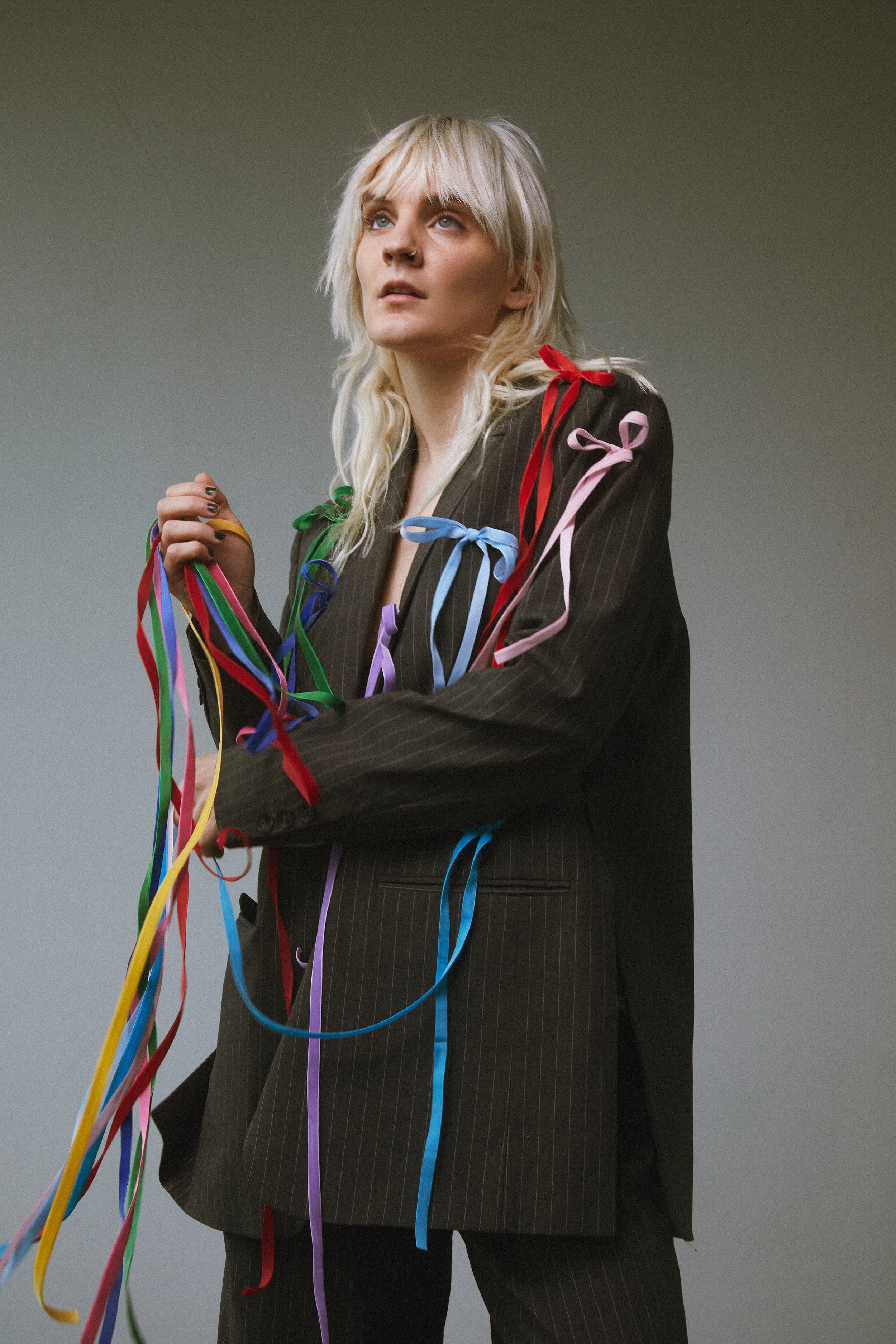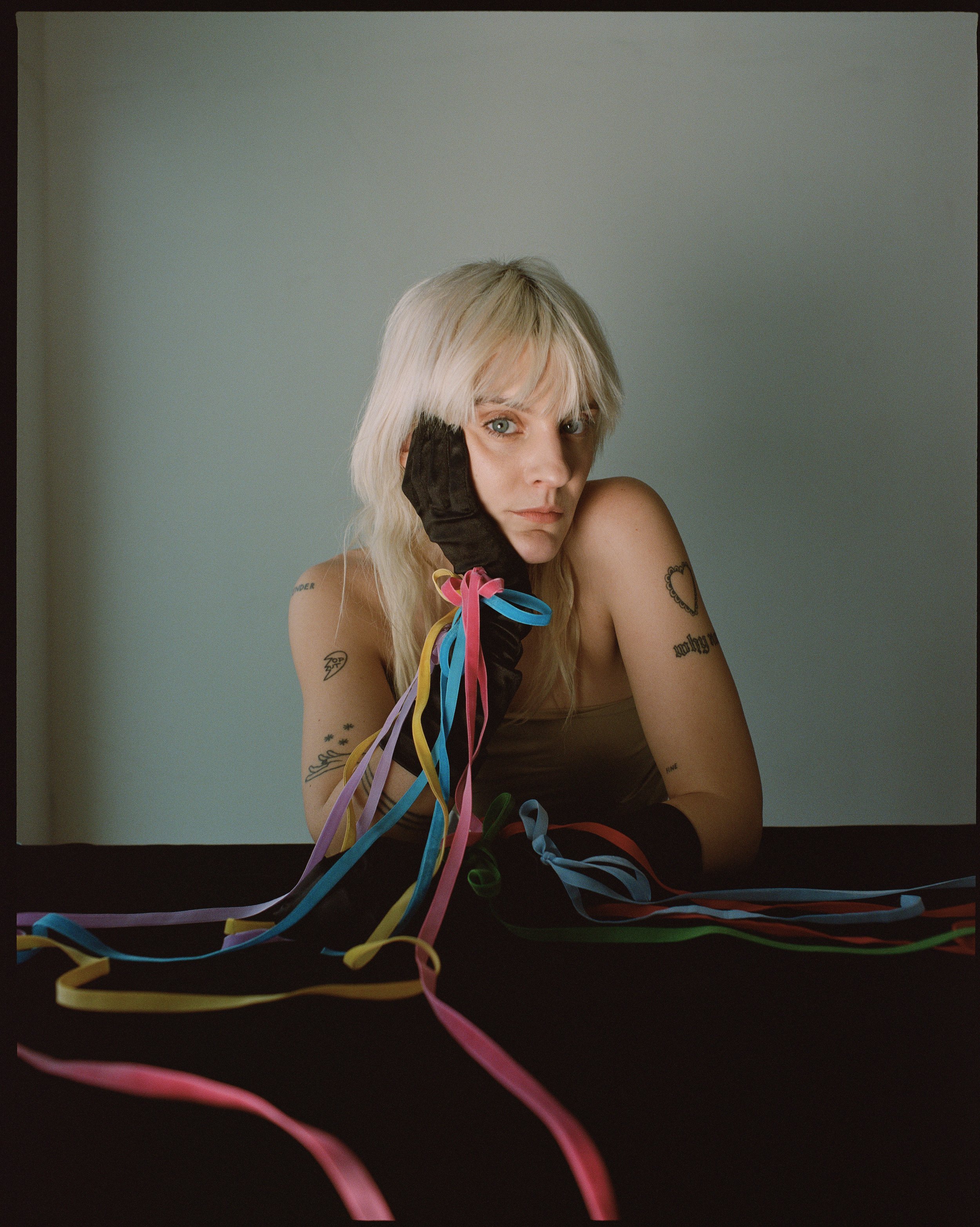by chris richmond
photo by brett warren
Trying to summarize Liza Anne into a few short words feels an impossible challenge to undertake: they're brazen and bold and brave, and they're fiercely fighting the ongoing battle for queer and women's rights. The battle is being fought by their refusal to compromise on how unabashedly their music and image is informed by their queerness, but it's equally being fought in tangible, material ways, such as the organisation of Liza Anne's ABBA Abortion Disco for Abortion Care. Their recent single, “Cheerleader,” a funky, rocky expression of queer joy, is fantastic; we were lucky enough to speak to Liza Anne about their current head space, their process of creating music, and the ongoing importance of the intertwining of activism and music.
Hi, Liza Anne! Thanks so much for agreeing to chat. We absolutely love your single “Cheerleader.” What was the inspiration behind the song?
Liza Anne: “Well, I wrote this song while I was still closeted and dating a man. In a way this song was a manifestation of feeling that I hoped I would get to live in reality one day.”
The music video for “Cheerleader” is brilliant. What was your experience like shooting the video?
Liza Anne: “It was almost like giving myself a redo of high school and an experience of adolescent queerness that I never got because of coming out at 29. It was a very queer set and it was very important to me to give everyone this freedom of being gay while in a high school — almost like exposure therapy for a space that holds a lot of residual pain. I will never forget what it felt like to kiss Eva (co-star of ‘Cheerleader’/close friend) in the high school locker room and be applauded for being gay rather than experiencing embarrassment was euphoric.”
You wrote, performed and produced the song. What is your process when it comes to creating songs? Is there one aspect of song creation that you find easier than the other?
Liza Anne: “I really like all of the aspects of song creation — it all feels a lot like breathing to me. I guess I could say that words come easier because I’ve been writing poetry since I was a kid but the whole of the process feels so good to my brain — like I’m expanding and contracting — breathing. ‘Cheerleader’ came from a co-write with two of my favorite collaborators — Kyle Ryan and Madi Diaz. The track started with drums, bass, and a guitar line that felt like Tom Tom Club. I wanted to create something joyful and true. Not like a reach into joy that felt foreign but like an understanding of joy that felt meant to live in my body — the instrumentation was an important window for that for me opening up new pathways in my brain to what that song would become... and what my life would become, too.”
Are we building up to an album?
Liza Anne: “Always.”
You proudly and brazenly intertwine your queerness into your music and performances, which couldn't be more important at a time as tumultuous as this where queer rights are being attacked from all angles across the world — so genuinely thank you for holding the fort and never compromising on yourself or your image. How do you feel about the current state of things and how does that manifest itself in your music?
Liza Anne: “I feel a lot of grief around what feels impossible to help and in that I feel completely dedicated to creating a sense of safety and home within my art — not only in the physical sense of the shows that I play and the physical room that I can provide for people, but in the emotional sense of the room that happens when you listen to a song that makes you feel at home — that room that you can carry around with yourself everywhere through. The process of coming out has moved me to such a tender place of understanding the importance of holding each other — I thought I understood that before but now there is a sacred reverence to community that is impossible to skip over.”
You're on tour this summer. What can we expect from a Liza Anne live show?
Liza Anne: “Right now my shows feel like experiencing and exploring movement and sound through the freedom found in limitations — learning how to work within the bounds that are possible given the current economy of the music industry. I’m pushing myself to present my project in the fullest way possible with less people on stage. I feel like I am playing again, exploring again, pushing myself to new understanding of what I am capable of — I’m so proud of this show.”
You have an event called Liza Anne's ABBA Disco for Abortion Care — sounds amazing! Can you talk us through the inspiration for the event and what its purpose is?
Liza Anne: “So much of activism feels really lethargic to me. It feels hard to feel like I’m doing much at all or making any real difference. In this economy, giving money feels really hard and asking anyone to give more than a concert ticket price feels difficult and unsustainable but it also feels really small to donate ‘only $20’ to an abortion fund. That $20 on its own doesn’t feel like it does a lot. These discos feel special because if you have 300 people giving $20, it feels like real movement. The discos themselves feel like a cathartic release of medicinal balm for us, too. It’s not just donating $20 to enter a raffle you don’t actually care about. It is money that gives and gives back, a joy space in this time that we all need. Turning ass shaking into abortion care feels important — the combination of grief and catharsis. It is so necessary.”
You took a bit of a break from releasing music the last few years. What was the reason behind the break and why did you feel that now was the time to come back?
Liza Anne: “I wrote the music I’m releasing now three years ago and spent the last three years really melting into my body and understanding myself more. It didn’t feel like taking a break, it felt like a patient breath that was necessary.”
photo by brett warren
How did you first get into music? Have you always been a performer? How did you get your big break?
Liza Anne: “I started writing poetry when I was eight and around 13 started to turn the poems into songs. Music was always a sacred room for me that felt like my emotions were valid and the heaviness of them felt possible to be carried because of hearing how other people held space for their emotions through songwriting. I don’t think I’ve had my ‘big break yet’ and thank god, who wants to have their best moment be in their 20s. I believe the best is on its way to me. I’m still blooming.”
Who are your musical inspirations? Whose music have you been listening to lately?
Liza Anne: “St. Vincent, Angel Olsen, and Feist are my big three. Recently, I’ve been listening to a lot of Arthur Russell — my girlfriend told me about him, they share a birthday so listening to him feels like knowing her better. I love how we can grow more love for the people we love by the windows that helped them understand themselves better.”
What are some of your goals? What would you like to achieve in your career?
Liza Anne: “I want to be happy, healthy and have a life full of love. I want to write songs that are true and I want those songs to end up wherever they need to end up. Anything else is icing on the cake.”


